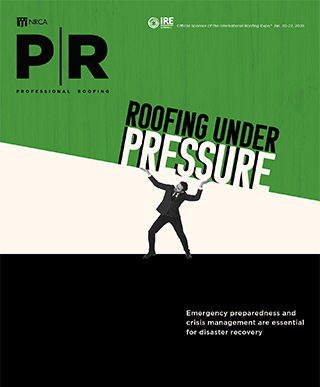
During the past few years, NRCA has talked a lot about retention tactics to keep hard-sought workers. These include beefing up your onboarding and training efforts, providing worker certification opportunities and improving foremen communication skills.
This month, Vice President of NRCA University Amy Staska discusses psychological safety, another powerful tool in any company’s retention arsenal (see “There’s more to safety than safety”). Staska explains companies that make the effort to help employees feel emotionally and mentally safe will experience less turnover and increased loyalty. And part of providing that safety includes an often-overlooked skill: being an exceptional listener.
Listening—really listening—is hard work. We often are so caught up in our thoughts that to provide someone else with truly undivided attention takes enormous effort.
And as Harvard Business School Research Associate Robin Abrahams and Professor Boris Groysberg note in a recent article they wrote for Harvard Business Review: “Listening is vitally important, sadly undertaught, physically and mentally taxing, and in the aftermath of COVID-19 has never been more difficult.”
The authors explain that in the current state of social distancing, remote work, texts and emails, and less human interaction, employees need to be heard more than ever, but employers are missing nonverbal cues they typically would pick up on during face-to-face conversations. And this could lead to employees feeling unsafe psychologically and increase their desire to find employment elsewhere.
Abrahams and Groysberg provide a few tips to make you a better listener:
- Repeat a person’s last few words back to them, which can provide a needed pause for you to gather your thoughts.
- Don’t rephrase what a person is saying unless you truly don’t understand. Rephrasing can increase emotional friction.
- Offer nonverbal listening cues, such as nodding and eye contact.
- Pay attention to the speaker’s nonverbal cues, such as tone, facial expression and body language, which often can reveal more about a person’s state of mind.
- Ask questions to clarify your understanding and minimize distractions.
- Pause before you respond. If you know a topic might be upsetting, calm yourself as much as possible before responding.
Great listening is a difficult skill to master, but following these bits of advice could make all the difference to employees who need to be heard.
AMBIKA PUNIANI REID is editor of Professional Roofing and NRCA’s vice president of communications.



